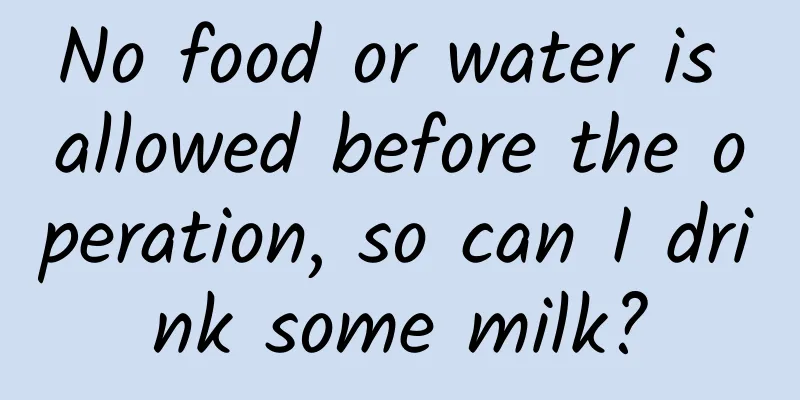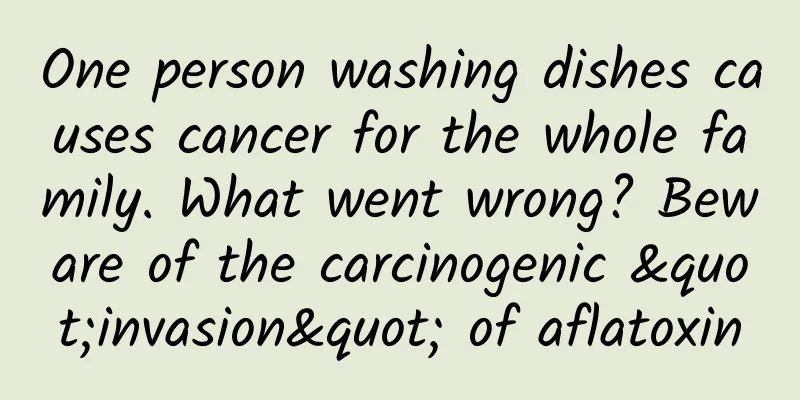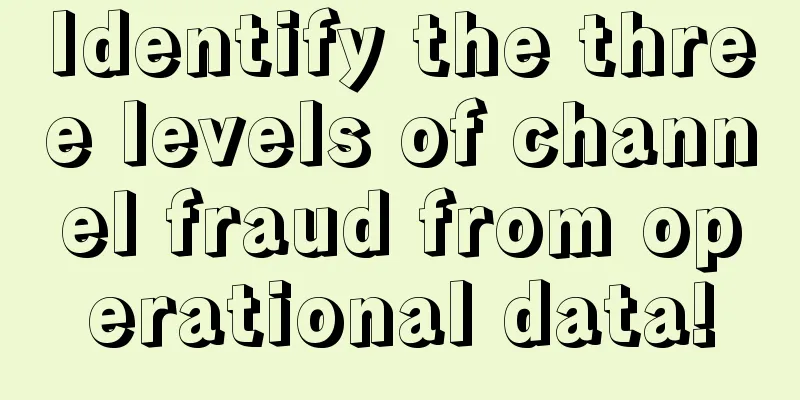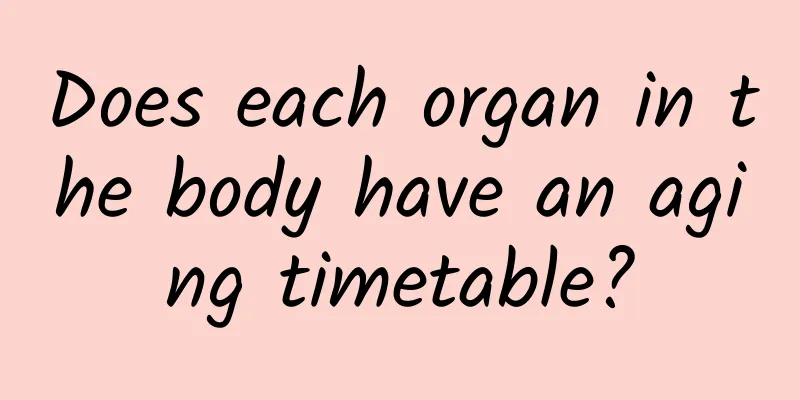No food or water is allowed before the operation, so can I drink some milk?

|
Author: Xia Yue, Beijing Chaoyang Hospital Reviewer: Li Mingying, deputy chief physician, Beijing Chaoyang Hospital As the saying goes, "Man is iron, rice is steel, and if you don't eat, you will be hungry." However, when we or our family members or friends need to undergo surgery, we are told that we cannot eat or drink before the surgery. In clinical practice, many patients and their families do not understand this. Although they will follow the doctor's advice, they actually think that they should eat a full meal before the surgery so that they can better tolerate the surgery. Figure 1 Copyright image, no permission to reprint The operating room is different from other departments in the hospital. Patients and their families cannot see or touch it. A door separates the world into two different forms. Patients and their families are full of curiosity about the invisible "world inside the door": Why is it required to abstain from food and drink before surgery? What are the consequences of secretly eating or drinking before surgery? Today, let me, a person who is "inside the door", answer them one by one. Figure 2 Copyright image, no permission to reprint Under normal circumstances, the food, water or other drinks we take in from the mouth will enter the stomach after chewing and swallowing. If you do not fast and abstain from drinking as required before surgery, the unemptied stomach is prone to "reflux and aspiration" after anesthesia. In a normal state, people have double protection to prevent the "reflux and aspiration" of food and gastric juice in the stomach. The first level of protection is a muscle at the connection between the end of the esophagus and the stomach-the cardiac sphincter, which is equivalent to the "valve" at the connection between the stomach and the esophagus, which can effectively prevent food and gastric juice from "flowing up". When the patient is generally anesthetized, the anesthetic will relax all skeletal muscles except the myocardium and smooth muscles, including the cardiac sphincter, which is equivalent to the "valve" at the connection between the stomach and the esophagus being opened during surgery! If there is undigested food in the patient's stomach, it will flow back into the mouth along the esophagus. This is what we call "reflux." In addition, the body's second line of defense - protective reflexes (such as choking and swallowing reflexes) will also be affected by anesthetic drugs, causing the stomach contents that reflux into the mouth to inevitably enter the lungs through the trachea, which is what we call "aspiration". A large amount of food residue or gastric juice entering the lungs will cause respiratory obstruction, leading to serious consequences such as atelectasis, aspiration pneumonia, lung infection, and even suffocation. So how long should you fast before surgery to be safe? In the past, no matter what time of day the patient had surgery, most were required to fast and abstain from drinking after 10 pm the night before surgery. With the vigorous promotion of the concept of accelerated recovery surgery at home and abroad, more and more hospitals have begun to pay attention to the physiological and psychological state of patients during surgery, and have taken a series of measures to reduce the physical and psychological trauma of surgery and anesthesia to patients, including optimizing the fasting and abstention plan before surgery to reduce patients' thirst, hunger and other discomfort. Based on this background, the Anesthesiologists Associations of various countries have updated their national guidelines for fasting and abstention before surgery. Among them, the preoperative fasting and drinking time recommended in the "2023 American Society of Anesthesiologists Preoperative Fasting Practice Guidelines" issued by the American Society of Anesthesiologists has been recognized worldwide. The relevant clinical guidelines and expert consensus of anesthesiology in my country are also consistent with its views, and both recommend: fasting and drinking before surgery. The shortest fasting time for clear beverages before elective surgery for adults is 2 hours. Clear beverages mainly include water, sugar water, carbonated beverages, clear tea, black coffee (without milk) and residue-free juice, but none of them contain alcohol; for starchy solid foods, the shortest fasting time is 6 hours, such as steamed buns, bread, noodles, rice, etc.; for fried, high-fat foods and meat, the shortest fasting time is 8 hours, such as hamburgers, pork, eggs, etc. The specific time requirements for children (under 18 years old) to fast before surgery are 2 hours for clear liquids, 4 hours for breast milk, 6 hours for infant formula, milk, and starchy solid foods, and 8 hours for fat and meat solid foods. However, it is worth noting that the above-mentioned fasting and abstinence periods before surgery are not applicable to all patients. For patients with esophageal diseases, a history of gastric surgery, pregnancy, obesity, or emergency surgery, their gastric emptying time will be much longer than that of other people, so in clinical practice, it is necessary to appropriately extend the fasting and abstinence periods of these patients. If necessary, ultrasound examinations can be performed to evaluate the state of their gastric contents, so as to use more scientific methods to determine whether the patient can undergo surgery immediately. In clinic, medical staff often say "no food or water before surgery" during education, which often causes misunderstandings among patients and their families. I once met an elderly patient who was about to undergo orthopedic surgery. Due to special circumstances in the previous surgery, the surgery of this grandmother was postponed for a while. After the grandmother entered the operating room, I checked the time of fasting and no drinking with her. The grandmother said: "I haven't eaten or drunk water since 10 o'clock the night before." I said: "Then you must be starving!" Just when I was about to explain to the grandmother why her surgery was postponed, the grandmother interrupted me and said: "I'm not hungry, girl, I just drank a box of milk before I came up..." In fact, in clinic, there are many patients like this. They heard "no food or water" in pre-operative education or daily life, so they mistakenly thought that they were just not eating or drinking, and did not strictly drink anything. Therefore, compared with the statement of "no food or water", it may be more appropriate for medical staff to use the expression "no food or water" during education. Although it is just a change of one word, it is likely to make a qualitative leap in the patient's cooperation. Figure 3 Copyright image, no permission to reprint After reading this, I believe everyone must have a clearer understanding of fasting and not drinking before surgery. Finally, I would like to emphasize to everyone that for the medical staff of the Department of Anesthesiology, there is no big or small operation, and anesthesia is also no small matter. Please follow the doctor's instructions before the operation and strictly abstain from eating and drinking. If you accidentally violate the regulations, please inform the medical staff in time to avoid accidents during the operation. Keep your mouth shut before the operation and don't worry during the operation. Let us work together to protect the lives of patients! |
<<: A trembling frog leg actually led to the invention of the battery?
>>: Can crabs be raised in the desert? Yes, they will soon be on your table! | Expo Daily
Recommend
Small size, big heart - Tsinghua Tongfang M770 business computer review
For small and medium-sized enterprise users, the ...
Paleontologist: Doctor, please make an appointment for me at the Department of Dentistry!
Produced by: Science Popularization China Author:...
Don’t know how to increase your conversion rate? Let’s play games!
There is a very interesting thing recently. There...
The top ten crisis public relations events that went viral in the first half of 2018. Let’s see who made the list!
That’s right, it’s time for the mid-year review a...
[Smart Farmers] Fighting against insects to protect rice crops! Controlling the notorious rice pest - brown planthopper
Arthropods are one of the most prosperous groups ...
Why can Apple, which has repeatedly failed in gaming performance, collect 40 billion in taxes every year?
If you ask someone to quickly name three game man...
Why don’t your marketing campaigns bring sales?
"Bringing goods" has become a topic tha...
How can the education industry seize the opportunity of winter vacation and acquire customers accurately?
In the education industry, the era of "let&#...
APP promotion丨Analysis of the advantages and disadvantages of mainstream promotion channels
01 Classification by traffic rating The editor di...
Is charging faster than refueling? BAIC Motor launches battery swap station 4.0, which takes only one and a half minutes
The range of electric vehicles has improved by le...
APP operation, the business logic you don’t know
Although the title is about the business logic of...
220 million box office in 3 days: Why is "See You Tomorrow" so popular?
Han Han's "See You Tomorrow" box off...
Weilai announced the successful tape-out of its 5nm chip. Why didn’t Huawei and BYD actively promote the same thing?
Will China's new energy vehicles be strangled...
Price inquiry for customized love and marriage mini program in Tacheng. How much does customized love and marriage mini program in Tacheng cost?
Tacheng marriage and love applet customization pr...
If you have received these 4 types of express deliveries recently, don’t open them and just throw them away!
Planning and production Source: Curious Doctor Ed...









